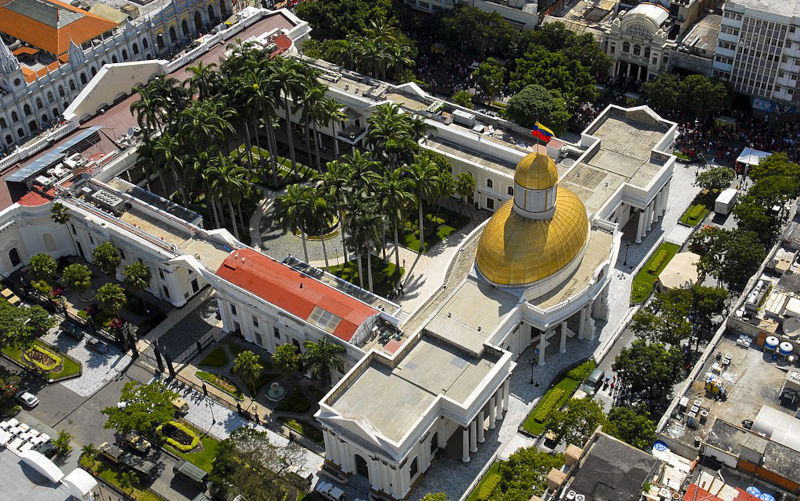
“The U.S. government believes that the only democratic institution in Venezuela is an assembly that has not met in seven years and whose term has expired,” writes Vijay Prashad, an Indian historian, editor and journalist in a recent article from Consortium News.
Without a single word of dispute for Vijay’s presented view of the United States’ dogmatic approach to Venezuela, I would like to add that everything about the situation, whilst very real, reeks of a something very familiar, and very sinister.
How convenient that the elected Venezuelan members of the 2015 assembly haven’t set foot in the Palacio Federal Legislativo, which houses the National Assembly, since the 2020 election of the new assembly.
The US government was good friends with the outgoing assembly president, Juan Guaidó.
The US government is quoted as calling the election a “political farce”.
As stated in Prashad’s article, both of the Venezuelan opposition parties, both of which failed to take control of the assembly, accept the legitimacy of the election, but the US does not.
How can this be?
Or, does the US intelligence services have an ulterior motive for advising the state department to not accept the 2020 elected assembly as legitimate?
If they don’t accept the legitimacy of the most recently elected body, then they can publicly regard the previous democratically elected assembly as being the only one they recognise.
Since the US state department naturally relies heavily on the intelligence services for information regarding other countries, and any threats to democracy in those countries where it exists, it stands to reason that if these intelligence agencies don’t want a regime change, for reasons of their own, they would of course advise their government that the election was a “political farce”.
This, in the face of those who lost the election giving statements of support for the legitimacy of the election.
I’m not someone who could infer as to what might be an agenda for such actions by intelligence services, but, I think it’s fair to say that the US intelligence services do have a very significant history of interfering in other countries’ politics, for whatever reasons that they have had.
Vijay Prashad states that he met with both of Venezuela’s opposition leaders and they both recognise the legitimacy of the 2020 election, in which they failed to secure enough votes to take control of the assembly.
This being the case, how is it even possible that the US state department could expect to be believed when they state that they only recognise, as a valid assembly, that which has not set foot in the Palacio Federal Legislativo since the election was resolved in 2020?
I ask again, how is this possible, unless the US intelligence services have an ulterior motive?
And, what is it?
I certainly don’t have a clue, but it seems to me that it has to be something to do with their affiliation to Juan Guaidó, the 2020 outgoing president that they apparently insist is still the only legitimate president.
A man who refuses to acknowledge his role as president has expired, as the Venezualen constitution requires, under Article 233, as stated in Vijay Prashad’s article.
Having written all of this, I may as well point out that it is my view that many of this world’s citizens would, and I believe do, find it difficult to relate the US model of democracy as anything more than a mere shadow of what most people consider a properly functioning democracy to be.
Is it possible that the US citizenry might at some time in the future, recognise the errors of their country’s actions in seeking to police the democracies of the world, when in fact, their power brokers have shown time and time again to be interested only in financial profiteering for themselves and their political donors?
I think not.



